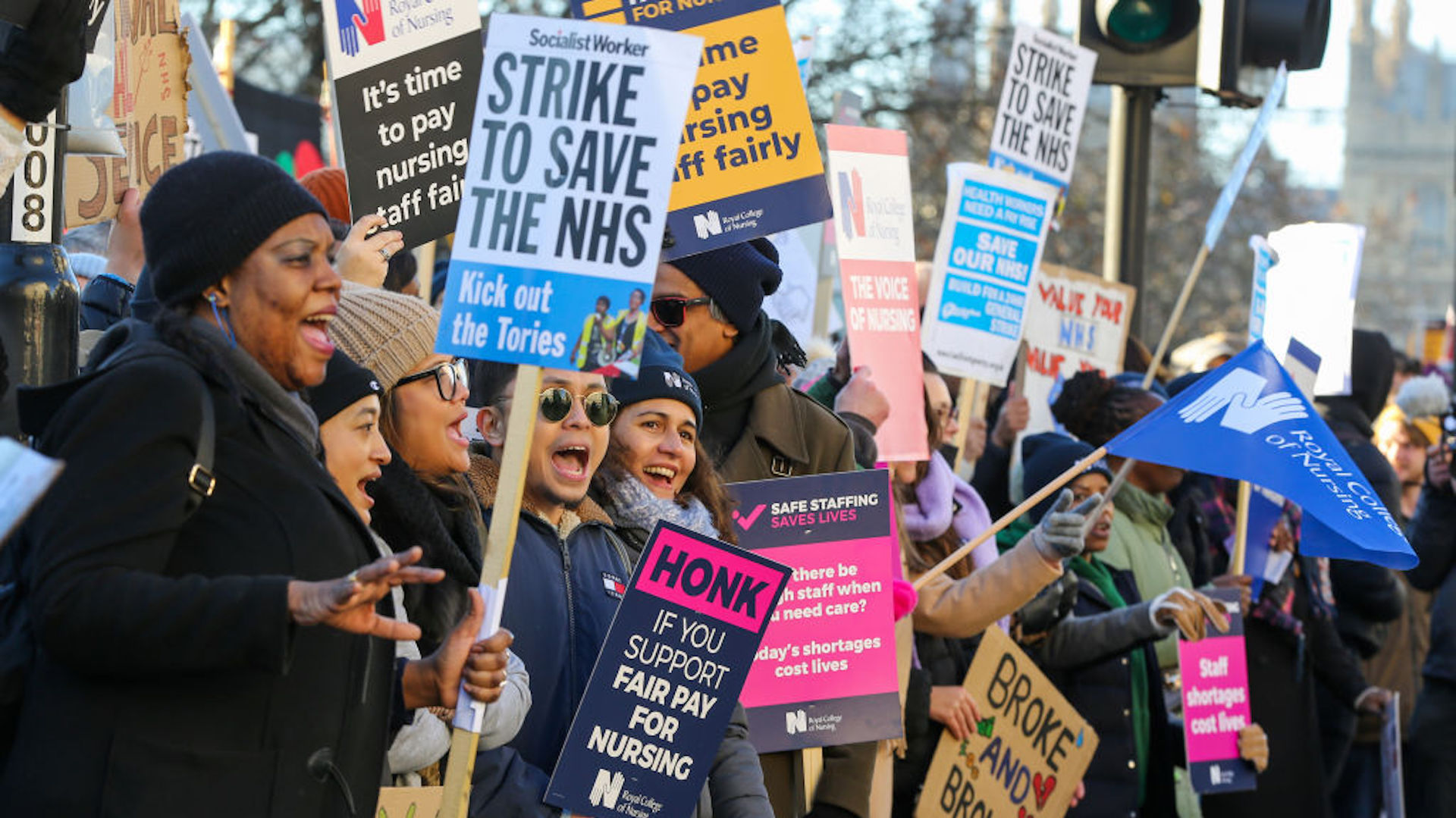Two-thirds of Britons support nurses striking for better pay, according to a new survey, and most blame the government for the strikes on December 15 and 20, the first in the 106-year history of the Royal College of Nursing.
Government ministers, newspaper columnists and some Labour frontbenchers have voiced their opposition to the strikes in recent days as NHS staff look for a pay rise to make up for more than a decade of real-terms wage cuts.
“Nursing staff have had enough of being taken for granted, enough of low pay and unsafe staffing levels, enough of not being able to give our patients the care they deserve”, said Pat Cullen, general secretary of the RCN, in the build up to the strikes.
- What happens when nurses go on strike?
- Here’s when and where nurses are going on strike
- 6 common myths about strike action, from salaries to public support
Strikes by ambulance drivers, due on December 21, are also supported by a majority of Britons (63 per cent) according to the survey carried out by YouGov between December 16 and 19.
Unions are looking for a pay rise of 5 per cent over inflation after 12 years of government cuts to health budgets. Ministers have so far refused to negotiate.
“The RCN’s demands are unaffordable during these challenging times and would take money away from frontline services while they are still recovering from the impact of the pandemic,” said Health Secretary Steve Barclay.











